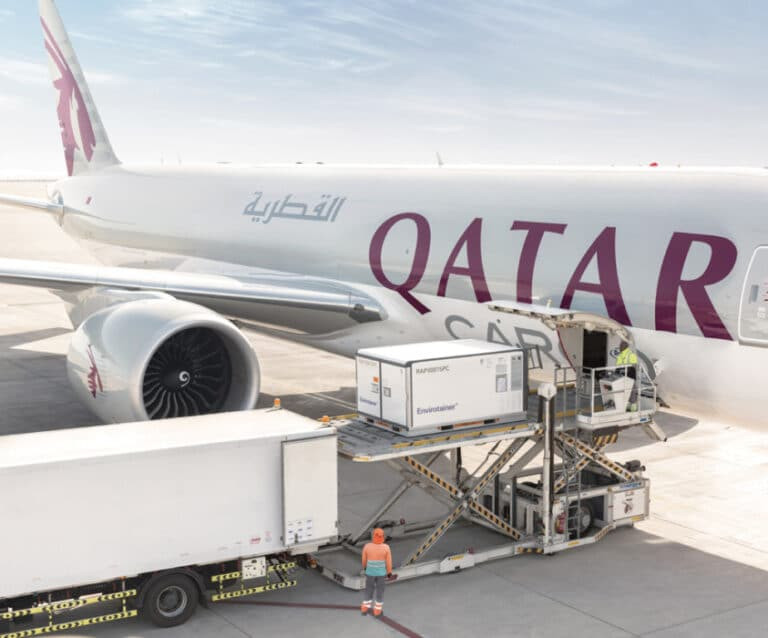Qatar Airways has published its Annual Report for 2019-20, highlighting the airline group’s resilience in the face of the continued “illegal” airspace blockade against the State of Qatar and the most challenging period in global aviation’s history.
Qatar Airways is familiar with facing exceptional challenges; however, 2019-20 has been one of the most difficult years in the airline’s history. The combination of the ongoing illegal air space blockade against the State of Qatar, the liquidation of Air Italy by the majority shareholder, changes to accounting policy and reporting standards and the COVID-19 pandemic crisis has resulted in the Qatar Airways Group reporting a net loss of QAR 7 billion for the year 2019-20. Excluding these exceptional items, the Group’s results at both operating and net levels would have been better than that reported in the year before clearly demonstrating the Group’s improving performance.
Such improvement is evidenced from the increasing in the Group’s overall revenue and other operating income to QAR 51.1 billion, up 6.4% compared to last year. Passenger revenue grew by 8.9% with capacity (Available Seat Kilometres) growth of 3.2%. Qatar Airways carried 32.4 million passengers, an increase of 9.8 per cent over last financial year.
Qatar Airways Group chief executive, Akbar Al Baker, said: “Despite the momentous challenges our Group has faced in 2019-20, Qatar Airways Group continues to remain resilient, reporting strong underlying fundamentals. If not for the exceptional circumstances of fiscal year 2020, our results would have been better than the year before.
Al Baker said: “During the fiscal year 2020, the Group’s revenue increased to QAR 51.1 billion, seat capacity increased by 3.2%, freight tonnes handled increased by 2.8% and passenger traffic at Hamad International Airport increased by 8.6%. Qatar Airways invested QAR 16.8 billion in fleet and other assets during the year and had a cash balance of QAR 7.3 billion at year end. Significant progress has been achieved in the three-year transformation plan, which began pre-COVID-19 and will position the Group’s operations and practices to meet the current challenges.
“I am extremely proud of the teams, departments and subsidiaries across the Qatar Airways Group that have remained agile throughout this tumultuous period and adapted quickly to this new reality, displaying the tenacity, versatility and commitment to excellence so often associated with everything we do. These efforts are why we have become the largest international airline and air freight carrier since the onset of the pandemic, taking over two million people home safely and reliably and carrying over 250,000 tonnes of medical and aid supplies to impacted regions.
“I have every confidence that the Qatar Airways Group will emerge stronger from this difficult period and continue to innovate and set the standards that our competitors can only hope to emulate. We will continue to be the airline millions of passengers can trust and rely on in good times and bad, and proudly fly the flag of the State of Qatar across the globe.”
Throughout the pandemic Qatar Airways’ network has never fallen below 30 destinations with continuous services to five continents. Since then the airline has rebuilt its network to more than 650 weekly flights to over 90 destinations across six continents offering passengers more flexible travel options via the Best Airport in the Middle East to more destinations than any other airline.
According to the latest IATA data, Qatar Airways has become the largest international carrier between April to July 2020 by fulfilling its mission of taking people home. This enabled the airline to accumulate unmatched experience in carrying passengers safely and reliably and uniquely positioned the airline to effectively rebuild its network. The carrier has stringently implemented the most advanced safety and hygiene measures on board its aircraft and in Hamad International Airport.
Qatar Airways operations are not dependent on any specific aircraft type. The airline’s variety of modern fuel-efficient aircraft has meant it can continue flying by offering the right capacity in each market. Due to COVID-19’s impact on travel demand, the airline has taken the decision to ground its fleet of Airbus A380s as it is not commercially or environmentally justifiable to operate such a large aircraft in the current market. The airline’s fleet of 49 Airbus A350 and 30 Boeing 787 are the ideal choice for the most strategically important long-haul routes to Africa, the Americas, Europe and Asia-Pacific regions.





